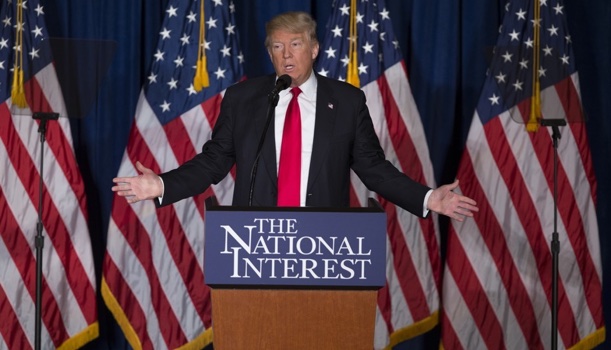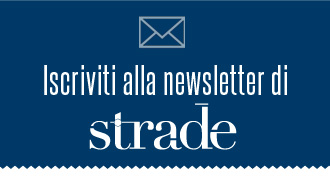I do buy American, more and more. How digital life belies Trump the protectionist
Innovazione e mercato

Politics is the art of the possible, the science of the relative, explained von Bismarck. However...
Trump depicted America - after the Bush and Obama presidencies - as a fearful and impoverished nation because of the stolen jobs that went abroad, an aging infrastructure due to the lack of resources drained by military expenditures which provided the defense to others. This carnage, this American massacre – as it was literally defined - will end with his presidency: "Hire American, Buy American."
I listened to the words of the new Republican President, and I started thinking of a day of mine -and of so many of us.
Early in the morning I switch on my tablet, an iPad manufactured in China, but with a significant added value that goes to California. Then I open the main Italian newspapers - in the digital version. Up until about five years ago, I used to purchase newspapers at the newsstand, supporting jobs for the seller and the distributor; today, in addition to the publisher, it is iTunes who is to gain from my morning news purchase. The money that used to go to the newsstand and the distributor now are headed to the US. It is less money, but they go there. Ditto with an Android platform by Google, of course.
Then I go out and rent a car with Uber: back when I used to call a cab by phone, I was supporting the job of the receptionist of the taxi cooperative. Today the money goes to America. When buying an Italian book online, I use Amazon, because it is convenient and shipping is fast. Before, I used to buy books from the bookseller who made a nice income and paid the clerk at the bookstore a salary in the process. Today I send money to the US. And if it is only for a quick read, I buy a digital copy and send even more money to the US, thereby not even contributing to the salaries of the worker in the warehouse, of the courier and of the delivery man.
When I read, I like to listen to some music. Back in the day, the shopkeeper and his employees used to gain from my purchase of LPs, or CDs. Nowadays I download music from the US online store that deals directly with record labels. If I want to rent a house for a holiday or just for the weekend, I don’t go see a travel agent anymore: Airbnb is quick and easy to use. The commission is lower, and it goes to the US. When I open my PC to surf the web for news, advertising is very accurate: it targets me exactly with the products I'm interested in. Is an Italian agency, specialized in the tastes of a man in his fifties, getting paid for this? No, also the money for this brilliant service go to America.
In the evening, I like to enjoy a good movie or a TV series: always productions from across the Atlantic, but distributed or broadcast by Italian companies or at least companies with facilities and employees in Italy. To be sure: I have access to RAI, Mediaset, La7, Sky Italy, and all other Italian TV outlets... but at night I want the best selection, and so I turn to my Netflix subscription: it is relatively inexpensive for what it has on offer, has a small structure in Italy, and the added value is sent directly to the US.
For each of these cases there are obviously buying alternatives that are not California-based but, with the exception of music streaming, the US market share of byte services, codes and algorithms enjoys an absolute and well-deserved supremacy. I never did the math, but considering my level of digital consumption, on "buying American" I can say I was ahead of Mr Trump.
This holds true even if one does not include more “traditional” goods, which in the last seventy years deserved to fill our markets, as we tried to emulate those who were once our liberators and later became the guarantors of our security: sodas, half of the airplanes on which we fly, F35 for the Air Force, the Pixar cartoons for our children, Mickey Mouse comics which from the company Mondadori were returned to the immense Walt Disney Company, the Ford Fiestas and Opel Corsas (those are manufactured in Europe, at least) and so on, from an over-the-counter drug to a Marlboro, a Big Mac and a credit card, a credit rating agency or an investment bank.
Even the software and the apps marking our days at work, where we gather information from and which we use to communicate, are from the US: iOS, Android, Windows, Google (including the irreplaceable Maps app), Facetime, Skype, Yahoo, WhatsApp, and so on. And I should also mention the digital places where we communicate and parts of our lives: Facebook, Twitter, Instagram, Snapchat, LinkedIn, YouTube ... Work, shopping, affections, pleasures, vices, virtues. Our digital lives, increasingly full and free, almost always speak only American: a growing portion of our life, even when it appears to be offered to us for free, generates high revenues and inflates the profits of American companies.
There’s more. While generating revenues, this digital environment produces an enormous amount of data about our digital lives, which are entirely traceable from our personal profiles or through simple cookies: our photos, our purchases, our legitimate and clandestine love affairs, our tastes, our invectives, emails, bills, phone calls and messages: they’re all stored in servers and in the cloud. Everything and forever. And everything is located in the US, where one can learn everything about us and where a simple leak that we would not even be responsible for may disrupt or spoil our feelings, our lives and our careers. If information is power, the giants of the Valley hold a gigantic power in their hands.
I have always thought that these data are in good hands. Such are the hands of the children and grandchildren of those who fought and died to liberate Europe from fascism and opened up the gates for us towards seventy years of freedom, democracy and prosperity. I always thought that, because of their culture and in their own interest, these children and grandchildren would always defend our privacy, even resisting any higher "interests of the nation", any "America first".
The forty-fifth President of the United States of America has addressed the cheering crowds of his fans with the powerful rhetoric of the carnage committed against Americans, evoking the repercussions of globalization on jobs in some traditional manufacturing sectors. His analog eyes, deliberately turned towards the last century, ignored the jobs that the eminently American tech companies destroyed in Europe and elsewhere, generating profits on Wall Street and reaching market capitalizations that even the car- or oil giants never attained.
Such is the world today, after many years of global Americanization, which we have loved and still love for its ingenuity and its genius, mainly centered in California, the most peaceful and creative cradle of hippies, a place which still benefits today from its extraordinary climate of tolerance attracting talents often with immigrant blood, like Steve Jobs or Mark Zuckerberg.
Will the arrogant, autarkic and protectionist nationalism cause defensive reactions and break this American-driven, albeit contradictory, bright spell? Hopefully not, but judging from the autarkic nationalism that was evoked lately, we are afraid it ultimately will.
Even in History, every action, sooner or later, has an equal and opposite reaction: if Mr Trump’s way to rule America begins with the narrative of a carnage perpetrated by the rest of the world, it is unlikely that this will not spark any reaction. If there has to be a nationalistic protectionist war has to be, it will soon develop into a war about the things that matter most and are most valuable today, i.e. the codes and the data; and the losers would be the free people and the free countries.
We are confident that this will not happen, that America will know how to persuade Trump his interest is to remain the vanguard of the open world, not the rearguard of the closed world. If this will not be the case, we will have to reluctantly accept it and play our match in Europe "without America", hoping to never have to play "against America".








